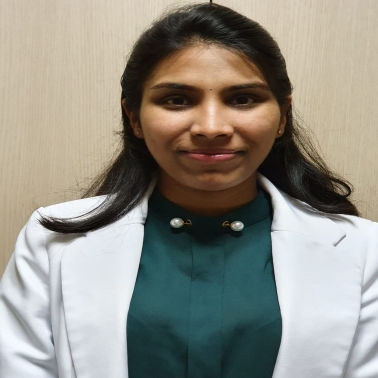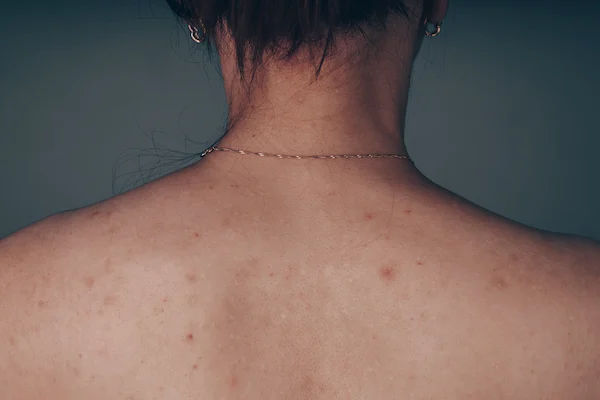All You Need To Know About Acne Treatment
Find out everything about acne treatment in this detailed guide. Learn about the best remedies, medications, skincare tips, and expert advice for clear, healthy skin.

Written by Dr Shreya Sarkar
Last updated on 3rd Jul, 2025
Acne is a prevalent skin condition affecting people of all ages, from teenagers to adults. It can be frustrating and affect your self-confidence. Fortunately, with the right acne treatment approach, most individuals can manage and even clear their skin.
This article offers a comprehensive overview of acne, its causes, treatment options, and tips for managing it. Whether you're dealing with occasional breakouts or persistent acne, you'll find practical advice that can help you achieve clearer, healthier skin.
What is Acne?
Acne occurs when hair follicles become clogged with excess oil, dead skin cells, or bacteria. It most commonly affects the face, chest, back, and shoulders, where sebaceous (oil) glands are most concentrated. While it’s most often associated with teenagers due to hormonal changes, acne can also affect adults, especially women due to hormonal fluctuations, stress, or lifestyle factors.
What Causes Acne?
Understanding the causes of acne is essential for effective treatment. Several factors contribute to the development of acne:
Excess Oil Production: Sebaceous glands produce oil (sebum) to keep the skin moisturised. When too much sebum is produced, it can combine with dead skin cells and clog pores, creating the perfect environment for acne to develop.
Clogged Pores: Dead skin cells that aren’t properly shed can accumulate and block pores. These clogged pores, often referred to as comedones, can lead to acne.
Bacterial Growth: Propionibacterium acnes (P. acnes), a type of bacteria, can thrive in clogged pores, leading to inflammation and the formation of pimples.
Hormonal Changes: Hormonal fluctuations, especially during puberty, menstruation, pregnancy, and the use of birth control, can increase sebum production, contributing to acne breakouts.
Diet and Lifestyle Factors: While diet doesn’t directly cause acne, high-glycemic foods, such as sugary snacks or dairy products, may exacerbate acne in certain individuals.
Stress: Stress increases cortisol levels, which can stimulate sebaceous glands and lead to more breakouts.
Genetics: If your parents or siblings had acne, you may be genetically predisposed to developing the condition.
Types of Acne
There are various types of acne, ranging from mild to severe. Understanding these types can help you determine the best course of treatment:
Whiteheads: Small, closed pimples that appear when pores are clogged with oil and dead skin cells.
Blackheads: Open comedones, or clogged pores, where the trapped oil oxidises and turns black.
Papules: Small, red, inflamed bumps that are typically tender to the touch.
Pustules: Similar to papules, but filled with pus. These are the typical pimples most people associate with acne.
Nodules: Larger, painful, hard bumps that form deep under the skin. They are often more severe than papules or pustules.
Cystic Acne: The most severe form of acne, characterised by large, painful, pus-filled lumps beneath the skin. Cystic acne can cause scarring if not treated appropriately.
How to Treat Acne: Step-by-Step Approach
Effective acne treatment requires a multi-faceted approach, combining skin care practices, topical treatments, and in some cases, oral medications. The right treatment plan depends on your acne’s severity and your skin type.
1. Daily Skin Care Routine
Maintaining a consistent skincare routine is crucial for managing acne. Proper cleansing removes excess oil, dirt, and dead skin cells, helping to prevent clogged pores. However, over-cleansing can irritate the skin and worsen acne, so it's important to strike a balance.
Cleansers: Look for gentle, non-comedogenic (pore-friendly) cleansers containing ingredients like salicylic acid or benzoyl peroxide. These ingredients help to clear pores and combat acne-causing bacteria.
Exfoliation: Regular exfoliation is vital to prevent dead skin cells from clogging pores. Choose mild chemical exfoliants like AHAs (alpha hydroxy acids) or BHAs (beta hydroxy acids), which are effective in promoting skin turnover without irritating it.
2. Topical Treatments
Topical treatments are often the first line of defence in acne management. These products help to target the root causes of acne directly on the skin.
Benzoyl Peroxide: One of the most common acne treatments, benzoyl peroxide reduces the bacteria that cause acne and helps to prevent pores from becoming clogged. Available in varying strengths, it can be effective for mild to moderate acne.
Salicylic Acid: A type of beta hydroxy acid (BHA), salicylic acid helps to break down the bonds between dead skin cells and exfoliate the skin’s surface, unclogging pores in the process.
Retinoids: Topical retinoids like adapalene accelerate cell turnover and help prevent clogged pores. They’re especially effective in treating both inflammatory and non-inflammatory acne. However, they can be drying and may cause initial irritation.
Antibiotics: Topical antibiotics such as clindamycin or erythromycin can help to reduce inflammation and the presence of acne-causing bacteria on the skin.
3. Oral Medications
For moderate to severe acne, oral medications may be necessary. Your dermatologist may prescribe:
Oral Antibiotics: These help to reduce inflammation and kill bacteria from the inside out. Common options include doxycycline, tetracycline, and minocycline.
Hormonal Treatments: For women, birth control pills containing estrogen can regulate hormones and reduce acne flare-ups linked to hormonal changes, such as those during menstruation.
Isotretinoin: This powerful medication is often used for severe cystic acne that doesn’t respond to other treatments. While it is highly effective, isotretinoin has significant side effects, including dryness and potential birth defects, and should be considered a last resort.
4. Professional Treatments
For persistent or severe acne, professional treatments can provide more significant results:
Chemical Peels: A dermatologist applies a chemical solution to exfoliate the skin, helping to clear pores and reduce acne.
Laser and Light Therapy: Certain lasers target sebaceous glands to reduce oil production and inflammation, while light therapy can kill acne-causing bacteria.
Extraction: Dermatologists can perform extractions to safely remove blackheads, whiteheads, and larger pimples that may not resolve with topical treatments alone.
5. Lifestyle Adjustments
In addition to medical treatments, certain lifestyle changes can complement your acne management strategy:
Healthy Diet: Emphasize a balanced diet rich in fruits, vegetables, lean proteins, and whole grains. Limit high-glycemic foods and dairy if they seem to trigger breakouts.
Stress Management: Practice stress-relieving activities like yoga, meditation, or exercise to help keep hormones in check.
Skin Care Habits: Avoid touching your face, as this can introduce bacteria to the skin. Also, refrain from picking at pimples, as this can lead to scarring and further inflammation.
Avoid Picking or Squeezing: Picking at acne can lead to scarring and further inflammation.
When to Seek Professional Help
If over-the-counter treatments aren't working or if your acne is causing significant distress, it’s time to consult a dermatologist. They can provide a personalised treatment plan, prescribe stronger medications, and offer treatments tailored to your skin's needs.
Conclusion
Managing acne is a journey that requires patience, consistency, and a multi-faceted approach. It’s important to remember that what works for one person may not work for another, so it might take some time to find the right combination of acne treatments for you.
Consulting with a dermatologist can provide personalised recommendations and ensure that you’re on the best path to clearer, healthier skin. With the right knowledge and support, achieving a clear, healthy complexion is within reach.
Consult Top Dermatologist
Consult Top Dermatologist

Dr. Madhab Datta
Dermatologist
5 Years • MBBS, MD (DVL)
Kolkata
Dr. Madhab Datta's Clinic, Kolkata

Dr. Kaushiki Hajra
Dermatologist
5 Years • MBBS, MD Dermatology, Venerology & Leprosy
Kolkata
MCR SUPER SPECIALITY POLY CLINIC & PATHOLOGY, Kolkata

Dr. Kaushiki Hajra
Dermatologist
5 Years • MBBS,MD(D V & L)
Kolkata
VDC Clinic, Kolkata
(50+ Patients)

Dr. Sonal Jain
Dermatologist
9 Years • MBBS, MD Dermatology, Venerology & Leprosy
Kolkata
MCR SUPER SPECIALITY POLY CLINIC & PATHOLOGY, Kolkata

Dr. Sree Lalitha V
Dermatologist
9 Years • MBBS, DDVL , FRGUHS , Fellowship in Cosmetology. Fellowship in Dermatosugery - national skin centre ,Singapore. University medal holder in postgraduation and national scholarship in IADVL dermacon 2017
Bengaluru
Apollo Medical Center, Marathahalli, Bengaluru


